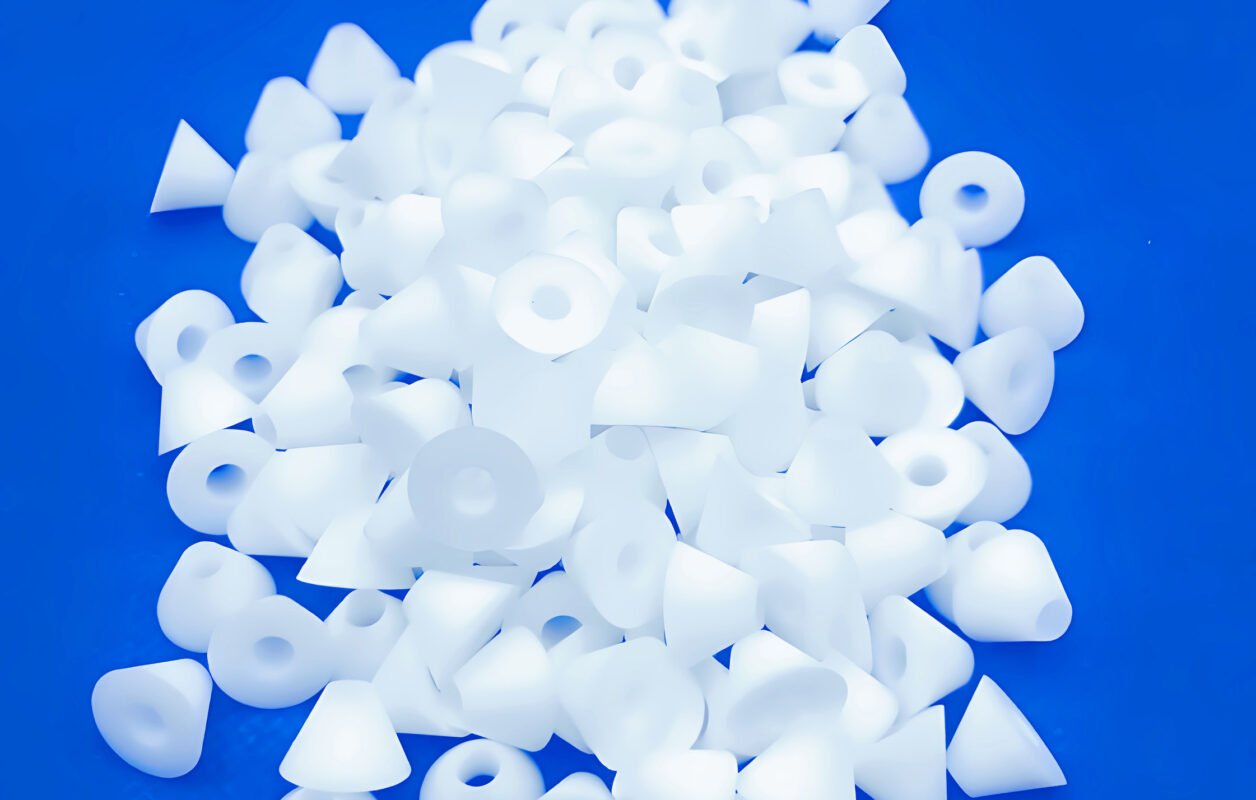PTFE (Polytetrafluoroethylene): Properties, Modification & Applications
PTFE, commonly known by the brand name Teflon®, is a high-performance fluoropolymer valued for its unique combination of properties. Its strong carbon-fluorine bonds create an inert, stable structure.
Key Properties:
PTFE’s most notable characteristics include:
-
Exceptional Chemical Resistance: It is virtually inert, resisting almost all aggressive chemicals and solvents.
-
Excellent Thermal Stability: It performs continuously from -190°C to +260°C.
-
Low Friction Coefficient: It has one of the lowest coefficients of static and dynamic friction of any solid, providing outstanding non-stick and self-lubricating properties.
-
Superb Electrical Insulation: It is an excellent dielectric material over a wide range of frequencies and temperatures.
-
Excellent Weatherability: It is highly resistant to UV light and moisture.
Despite its advantages, pure PTFE has limitations like low mechanical strength, creep, and difficult processability. It is often modified by compounding with fillers to enhance specific properties:
-
Glass Fiber: Increases hardness and reduces creep.
-
Carbon/Graphite: Improves wear resistance and conductivity.
-
Bronze: Enhances thermal conductivity and wear resistance.
-
Molybdenum Disulfide: Further improves lubricity.
Industry Application Examples:
-
Chemical Processing: Gaskets, seals, and linings for pipes and vessels handling corrosive chemicals.
-
Electrical Industry: Insulation for wires and cables, especially in high-temperature and critical environments.
-
Automotive: Seals, ring liners, and bearings in transmissions and engines, benefiting from low friction and heat resistance.
-
Consumer Goods: Non-stick coatings for cookware.
-
Medical: Expanded PTFE (ePTFE) is used in vascular grafts and surgical membranes due to its biocompatibility.
-
Aerospace: Used in components requiring extreme reliability against heat, chemicals, and wear.
Through modification, PTFE’s versatility is expanded, solidifying its role as a critical material across advanced industries.

